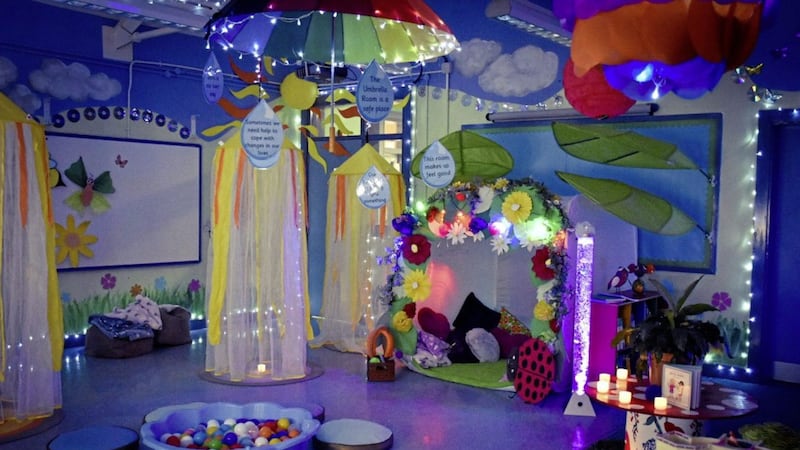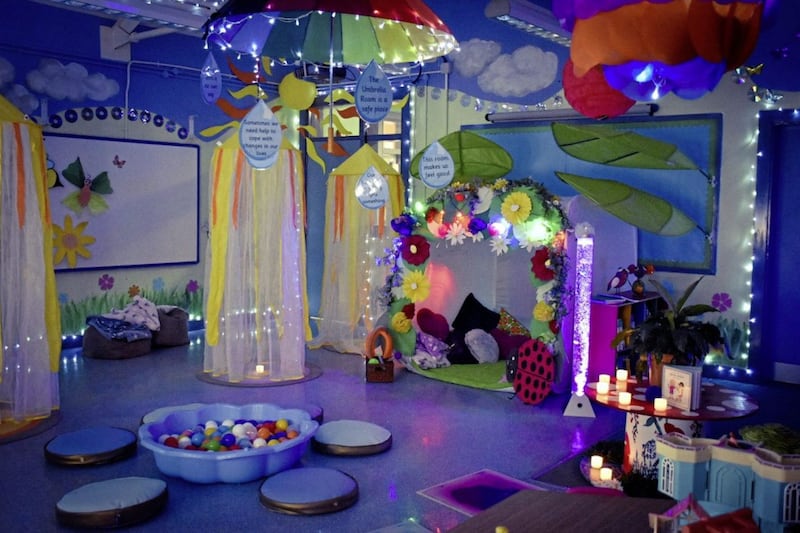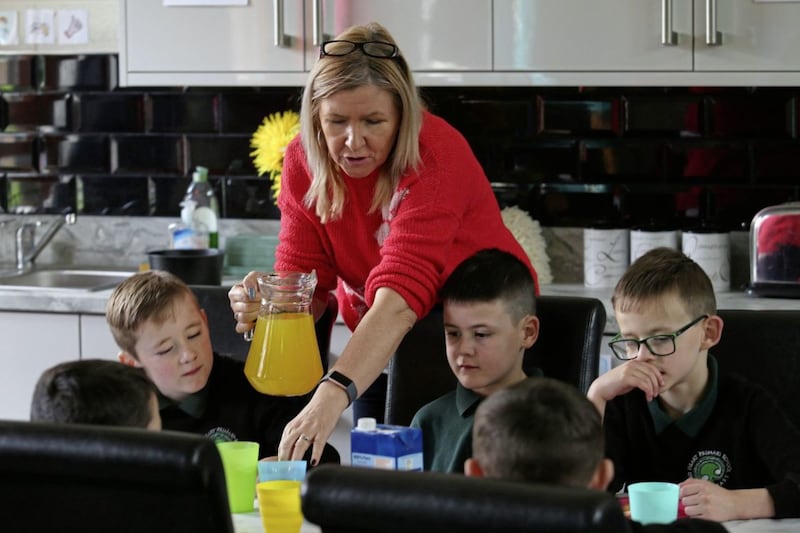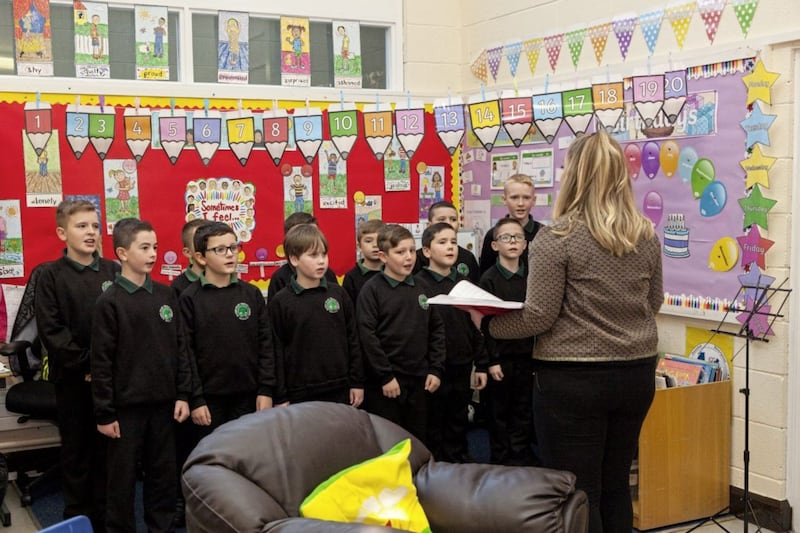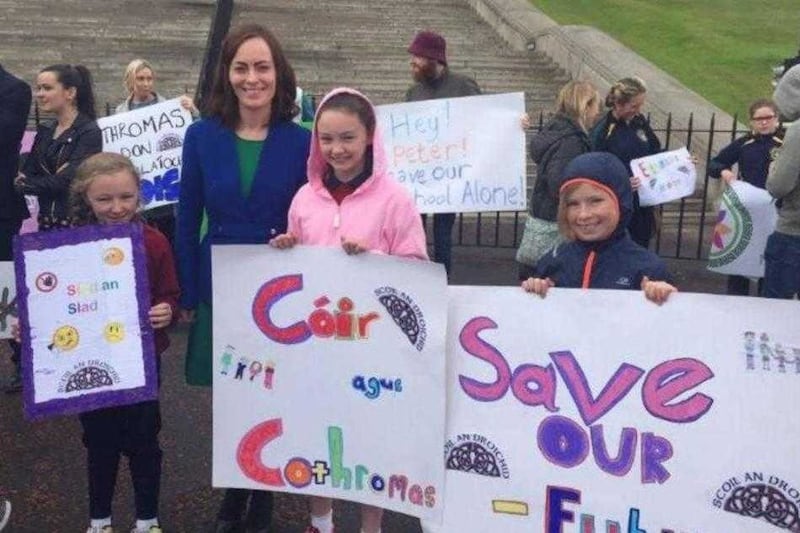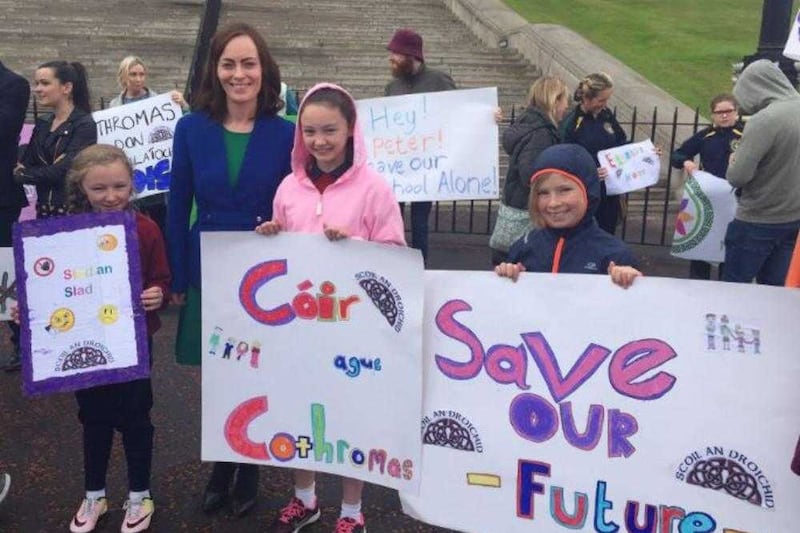A PRIMARY school has created its own colourful nurture unit to meet the emotional and wellbeing needs of its young children.
St Eithne's PS in Derry plans to launch its `umbrella room' this month.
School nurture groups improve the social, emotional and behavioural outcomes among children from some of the most deprived areas.
Hundreds of children - typically those in P1 to P3 - benefit from extra help in special facilities that are often equipped with kitchens, sofas, and quiet rooms.
An analysis of data by Queen's University Belfast, gathered on children in these settings found that, on average, they made consistently large improvements in social, emotional and behavioural development.
At St Eithne's, there are 174 children entitled to free school meals and about 90 have some special educational need.
Vice principal and special educational needs coordinator Sean Conaghan said the school was adopting a self-funded and self-sufficient approach to meet the needs of SEN children as well as looking after all pupils' wellbeing.
The umbrella room will emulate the six principals of nurture.
:: Children's learning is understood developmentally
:: The classroom offers a safe base
:: The importance of nurture for the development of wellbeing
:: Language is a vital means of communication
:: All behaviour is communication
:: The important of transition in children's lives
"This has been our most significant challenge yet," Mr Conaghan said.
"We felt the need to develop an internally driven and strategic in-house support mechanism to meet all the needs of our children. This response takes into consideration meeting not only their educational needs but also their social, emotional and mental wellbeing which we aim to do through a pastorally rich and nurturing ethos.
"In direct response to this issue we, at St Eithne's Primary School, have worked tirelessly to create a nurturing presence and ethos within our school and have created our very own unique umbrella room, `to shield us when it rains'."
The project will support children, parents and families in dealing initially with the challenging return to school as well as developing emotional resilience and life skills.
"We endeavour to use our umbrella room to support and facilitate children with social, emotional, behavioural and wellbeing difficulties in a very calm and nurturing space," Mr Conaghan added.
"This room will provide a quiet, reflective, peaceful and relaxing atmosphere for not only small groups of children but for the entire school community. In this room the children will be provided with experiences of mindfulness, circle-time and social skills as well as activities focussed on building confidence, self-esteem and developing relationships and trust."
There are just 46 schools in the north that operate Department of Education-funded nurture groups.
Minister Peter Weir established 15 new groups in primary schools for the 2020/21 year. A further existing 31 will continue to be funded.
A new Nurture Approach in Education Programme is to be made available to all education settings without a nurture group facility to avail of training and support. In addition, a Nurture Advisory Service will be established within the Education Authority.
"Nurturing is a key element in supporting our children and young people to make the best start in life and help to improve their educational outcomes," Mr Weir said.
"These units directly support children who are already having to face significant challenges in their young lives and these can be social, emotional or behavioural difficulties."
::
COMMENT
THE concept of nurture groups has been widely developed to address behavioural needs within schools.
These offer a safe and welcoming environment to promote learning and positive behaviours.
They play a key role in tackling under-achievement early in a child's life by providing targeted support.
However, money is scarce, meaning not everyone who wants, or more accurately needs, such a facility will win funding.
This means schools including St Eithne's PS are having to delve into their own pockets.
Evaluations have found clear evidence that nurture group provision is highly successful in its primary aim of achieving improvements in the social, emotional and behavioural skills of children from deprived areas exhibiting significant difficulties.
While progress was found among children from all groups, there was some evidence that greater progress was being made by those attending on a full-time basis, looked after children and by those not eligible for free school meals.
Only 46 nurture groups receive public money.
Elsewhere, there is tremendous work being done by schools, including Sacred Heart PS in north Belfast, on a shoestring.
They have warned that without a further injection of public funds, spread across even more schools, that these services face being wound up.
Given the success of nurture, and increase in the number of children requiring early interventions, the department is likely to come under further pressure.
